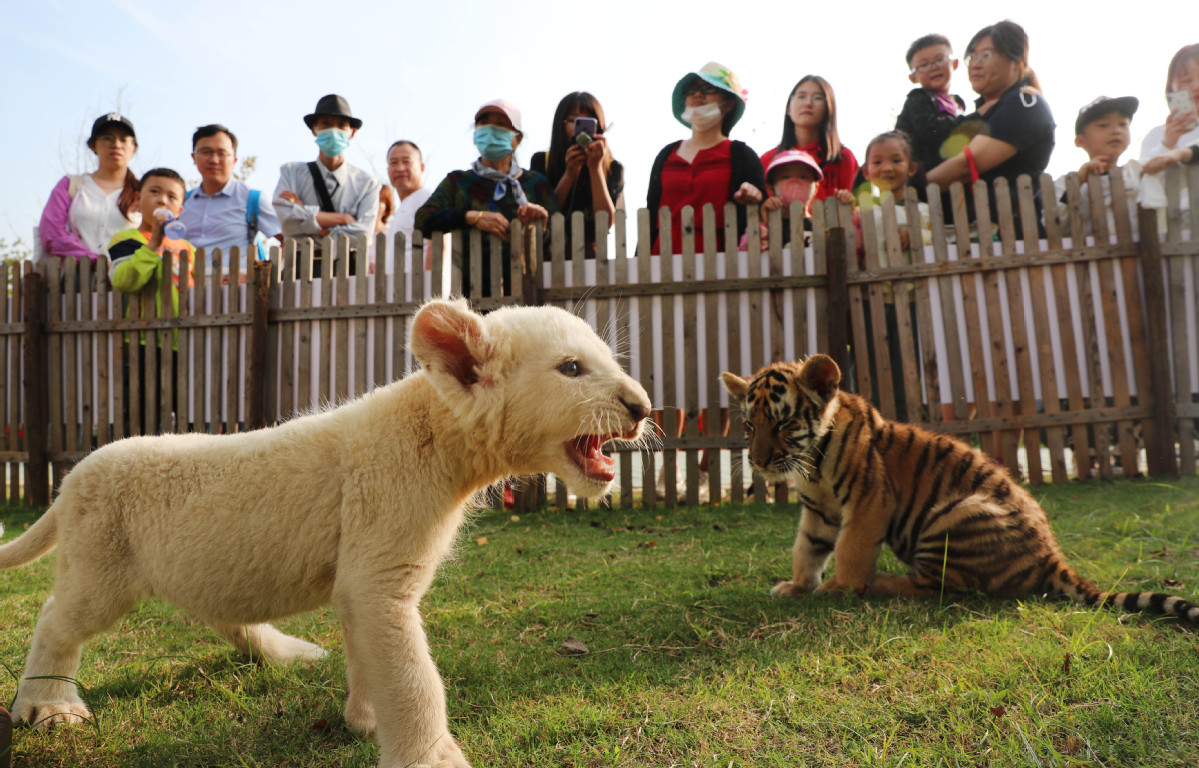Lessons to learn from frequent zoo attacks


The fatal attack on a zookeeper by a tiger at a zoo in Anhui province on Sunday should force us to take a long, hard look at the surging zoo industry and the tragic incidents caused by poor management.
This horrific attack, which occurred when the keeper was cleaning the tiger enclosure without locking the separation gate, was entirely preventable. All too often we see - yet still fail to learn - that laxity in zoo management, especially when it comes to wild animals, brings tragedy to both them and us.
Sad stories keep coming from out of our zoos and animal parks, which over the years have made headlines both at home and abroad. Several of them date back just weeks - three leopards escaped a zoo in Hangzhou in the end of April and one is still at large.
In view of recent zoo incidents, it is necessary to strengthen the management level and secure the hidden dangers of urban governance. Poor management causes tragedy not only to humans, but also to animals. Two brown bears from Whipsnade Zoo in Dunstable, the United Kingdom, were shot and killed after escaping from a zoo enclosure just two days ago, to protect people and other animals.
Zoos, usually in city center with dense population, mainly function as a place for entertainment, education, research, and protection of the species. Recent years have seen the flourish of zoos, wildlife parks, and aquariums in China due to rising demand. By 2020, China’s theme parks were projected to welcome 330 million visitors a year. Data show that as of 2018, there were 185 urban zoos and wildlife parks in China, including 49 wildlife parks.
Despite the scale of the industry, the management inside the animal facilities is a cause for concern. Managing a zoo requires balancing the provision of excellent animal management and care with an optimal visitor experience and quality customer service. Along with expanding its business, zoos should also look for sustainable development with proper financing, facility and safety measures. Zookeepers should be provided with proper training regularly.
Due to a lack of legislation and oversight, zoos are often free from legal responsibilities. For example, the Ministry of Housing and Urban-Rural Development oversees government-owned zoos, wildlife parks come under the remit of the State Forestry Bureau, while the fishery bureau under the Ministry of Agriculture is responsible for aquariums.
Another lesson we should learn is how we cope the human-animal relationship. Had the zookeeper locked the separation gate, he would not have lost his life. Not only zookeepers, but also visitors, especially children and many adults who lack judgment, a wrong perception has been built that animals are there for the entertainment of humans. Just because animals are in captivity, doesn’t mean they aren’t still wild. Fierce animals still have instincts of the wild and they are not tame just because they are more used to humans. They can still attack someone if they feel threatened or hungry and are still unpredictable, like many of the sad zoo attack stories show.
Rules and regulations are not heavy shackles to freeze us, but could be life-saving ropes that lead us to safety.


































